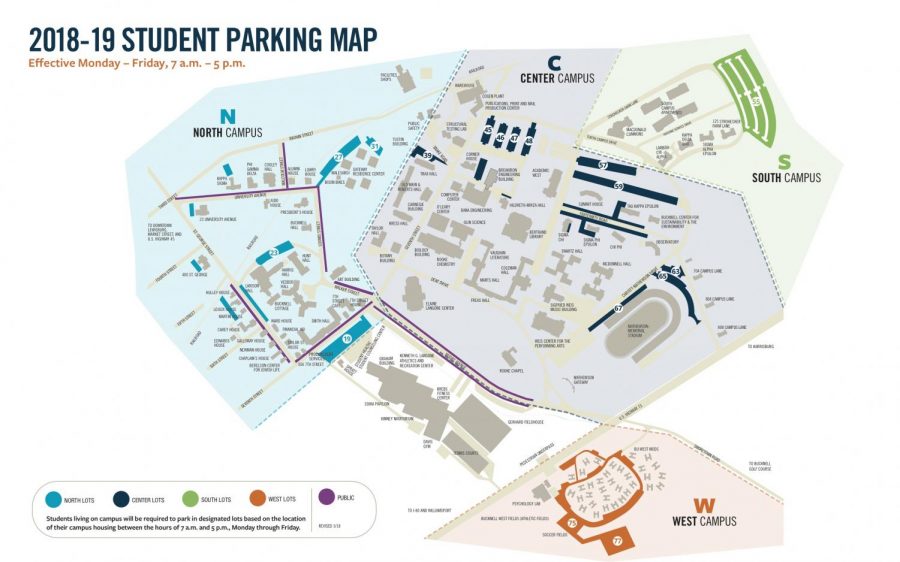Student parking to change indefinitely starting fall 2018
March 29, 2018
Chief of Public Safety Stephen Barilar notified rising sophomores, juniors, and seniors over email on March 26 of the implementation of new parking policies to take place beginning in the Fall 2018 semester. The new policy prioritizes pedestrian traffic, and will further the University’s sustainability efforts.
“The most notable change will be that students with vehicles who live on campus will be required to park in designated areas on Mondays-Fridays from 7 a.m. to 5 p.m.,” Barilar said in the email. The University will be divided into four zones: north, south, west and center. Students will be assigned a zone based on their residential housing and will only be allowed to park in that zone during weekdays, 7 a.m. to 5 p.m. Students living off-campus will not be affected by the change.
According to Barilar, the changes have been a long time coming, and are not in response to the construction of Academic East, which will cost the University 100 parking spots. However, Barilar remarked that Academic East’s impact on parking created an apt time to implement changes. Multiple student organizations, including BSG, were consulted regarding these changes, Barilar said.
“Among the biggest challenges we are trying to address is students driving short distances from their residence halls to academic buildings — for instance, from the Gateways to the library,” Barilar said. “None of our residences are more than three-to-four tenths of a mile from the heart of campus, and it’s often faster to walk from an on-campus residence than it is to drive and find parking.”
According to Barilar, students driving short distances causes traffic and conflicts with the University’s goals of creating a sustainable and pedestrian-friendly campus.
Sam Havens ’20, who currently has a car on campus, saw both negative and positive aspects of the new policy.
“It’s a positive change because it will definitely cut back on emissions, especially since a lot of students drive to classes,” Havens said.
However, Havens believes many students will view this change as negative if they live in a dorm far away from academic buildings, such as the Mods. Another potential negative impact Havens noted was that the new policy could potentially cause students to be late for class.
“Overall the intentions are good, but I think it could be implemented in a different way to accommodate certain students. Maybe those who live in [the] Mods could have special parking passes.”
“I think it’s better that they have set zones for everyone now rather than single out the people who live in the South Campus Apartments,” Chelsea Reynolds ’19 said.
Students living off-campus are not included in this change and will be treated equally as faculty, staff, and visitors, in that they are permitted to park in designated areas across campus.
“Otherwise, we would be in the position of evaluating each off-campus student residence and distinguishing between those whose residents are permitted to drive and those who are not. Moreover, given that lease agreements are signed so far in advance, students residing off-campus in fall 2018 would have made that decision without being aware of this change,” Barilar said.
Barilar affirmed that the policy will be adjusted as necessary and encourages anyone with questions to reach out to the Department of Public Safety.






















